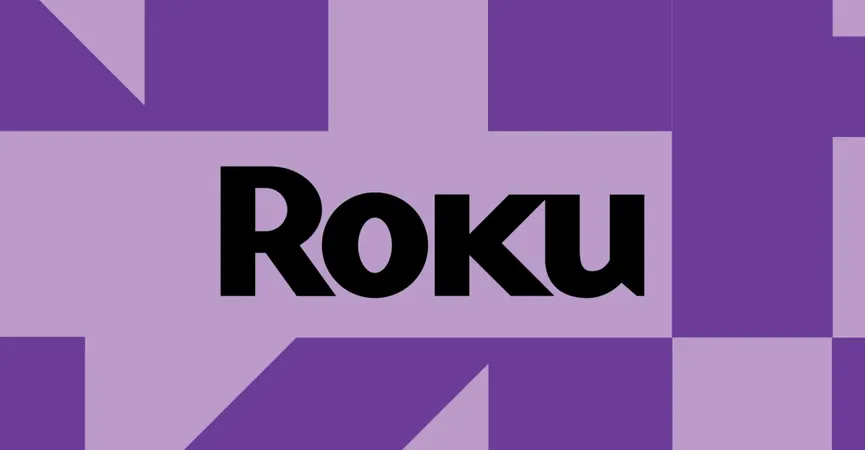
Roku Ruffles Feathers with Unwanted Video Ads Before Home Screen Access
2025-03-17
Author: Lok
In an unexpected move that has left some Roku users fuming, the streaming device company has begun testing video ads that automatically play before users even reach their home screen. This weekend, many users reported that they were greeted with a trailer for the highly anticipated 'Moana 2' as soon as they turned on their devices, prompting a wave of discontent across various Reddit threads and community forums.
The backlash from customers has been swift and overwhelmingly negative. Many users have expressed their dissatisfaction and frustration, emphasizing that while they might tolerate simple banner ads, a video ad playing without their consent is crossing the line. One Redditor stated, 'I’ll take the banner ads, but I’ll be damned if I’m gonna put up with a video loading when loading up my Roku.' Another user lamented the intrusive nature of these ads, saying, 'Just turned on my TV to see a video open on the homescreen and play some trailer? I hope this was a fluke.' This sentiment echoes concerns about Roku's focus on monetization at the potential expense of customer satisfaction.
Interestingly, Roku's revenue model heavily relies on advertising rather than solely on device sales. In a recent earnings call, Roku's founder and CEO Anthony Wood addressed the balancing act of evolving ad experiences while preserving the 'iconic' nature of their home screen. He emphasized, 'Our strategy of making better use of our homescreen is not just about putting a marquee video ad on the homescreen. We’re very careful about putting ads on our homescreen.' He reassured users that their beloved interface wouldn't be compromised, but actions speak louder than words, and many are questioning that claim.
Roku's attempt to innovate in advertising is not new; last year, the company began transitioning from static ads to a more dynamic advertising approach. They have even explored the idea of inserting ads on devices connected through HDMI, hinting at a desire to expand their advertising reach beyond just their own players. However, users see the new video ad model as a misstep, with many already declaring their dissatisfaction.
The trend of invasive advertising is not isolated to Roku—major players like Amazon and Google are also experimenting to see how far they can push consumers in exchange for affordable devices. In fact, less than a month ago, a full-screen advertisement for Starbucks appeared on the Google TV interface of a high-end Hisense U8N, which retails for over $900, demonstrating a widespread industry trend.
Consumers looking for a reprieve from incessant ads have options, such as ignoring them, switching to platforms like Apple TV 4K, or employing third-party tools like Pi-hole to block unwanted ads. However, there’s a growing concern that Roku may be taking steps to thwart these ad-blocking solutions, leaving users feeling increasingly trapped by the advertising machine.
As the dust settles on this new advertising approach, one thing is clear: Roku and other companies must tread carefully. Users' patience is wearing thin, and if these video ads persist, Roku may risk losing loyal customers who feel their viewing experience is being compromised for profit. The balance between monetization and user experience has never been more crucial in the competitive streaming landscape. What will Roku's next move be? Only time will tell.






 Brasil (PT)
Brasil (PT)
 Canada (EN)
Canada (EN)
 Chile (ES)
Chile (ES)
 Česko (CS)
Česko (CS)
 대한민국 (KO)
대한민국 (KO)
 España (ES)
España (ES)
 France (FR)
France (FR)
 Hong Kong (EN)
Hong Kong (EN)
 Italia (IT)
Italia (IT)
 日本 (JA)
日本 (JA)
 Magyarország (HU)
Magyarország (HU)
 Norge (NO)
Norge (NO)
 Polska (PL)
Polska (PL)
 Schweiz (DE)
Schweiz (DE)
 Singapore (EN)
Singapore (EN)
 Sverige (SV)
Sverige (SV)
 Suomi (FI)
Suomi (FI)
 Türkiye (TR)
Türkiye (TR)
 الإمارات العربية المتحدة (AR)
الإمارات العربية المتحدة (AR)